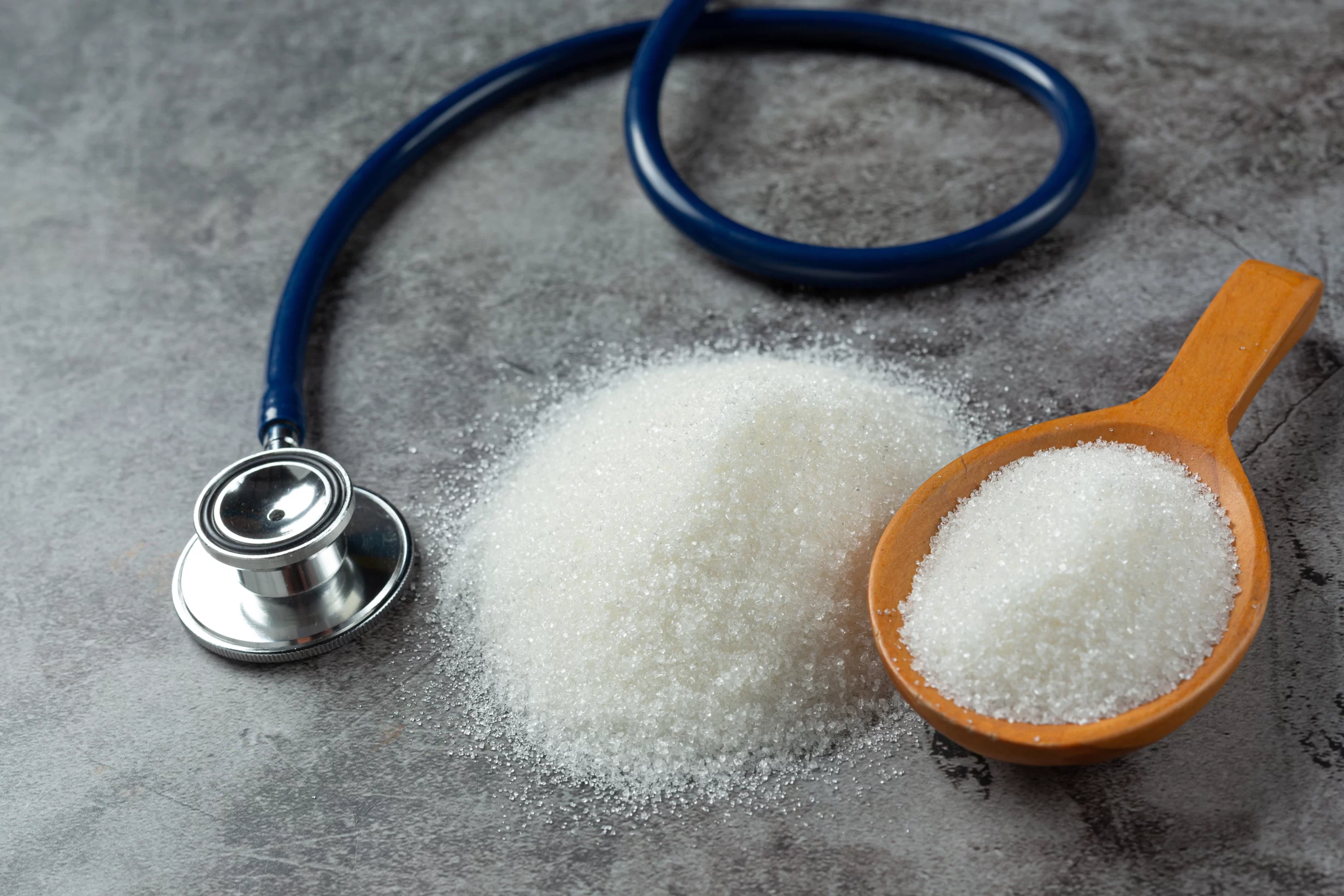Summary: Those living with diabetes often use artificial sweeteners to replace table sugar. However, new studies show they are not entirely safe, especially if used indiscriminately. Artificial sweeteners, when abused, can also make insulin resistance worse and have an adverse impact on other metabolic parameters. The new study shows that the artificial sweetener erythritol may even increase the risk of cardiovascular events in the long run. It appears to increase platelet aggregation.
Fast-absorbing carbs, such as table sugar, are a type of carbohydrate that is quickly broken down and absorbed by the body. When consumed in excess, they can cause blood sugar levels to spike, which can be particularly problematic for people with diabetes. This is because individuals with diabetes have difficulty regulating their blood sugar levels, which can lead to a range of complications over time.
Table sugar, also known as sucrose, is a common form of fast-absorbing carbohydrate. When consumed, it is rapidly broken down into glucose and fructose in the body, which can contribute to elevated blood sugar levels. This can be particularly problematic for people with diabetes, as their bodies may not produce enough insulin to manage the increased glucose levels in the bloodstream properly.
Reducing sugar intake is important for everyone, but it is particularly important for people with diabetes. This is because excessive sugar consumption can lead to a range of complications over time, including heart disease, nerve damage, and kidney disease. In order to reduce sugar intake, many people turn to zero-calorie artificial sweeteners as a substitute for table sugar.
Common artificial sweeteners include aspartame, sucralose, and erythritol. Erythritol is a natural sweetener made from fermented corn or other natural sources. It is calorie-free and does not cause blood sugar levels to spike, making it a popular option for people with diabetes. While artificial sweeteners like erythritol can be helpful for reducing sugar and calorie intake, they are not without their potential side effects. For example, some people may experience gastrointestinal symptoms such as bloating, gas, or diarrhea when consuming artificial sweeteners. In addition, there is some concern that consuming large amounts of artificial sweeteners over time may have negative effects on long-term health outcomes, such as an increased risk of certain types of cancer.
Those regularly using artificial sweeteners must know they are not entirely safe, as frequently imagined. Since they are sweet, they still cause an increase in insulin production and worsen insulin resistance over time. They also appear to have a negative impact on gut microbiota, thus having numerous negative consequences for health.
In recent years, researchers have identified many side effects of artificial sweeteners. These side effects are more likely to occur in those who use them too frequently.
Until recently, it was assumed that they are at least safe for heart health. Using them may result in better cardiovascular outcomes in those living with diabetes. However, new studies show that some artificial sweeteners like erythritol may not be as good for heart health. A new study shows that erythritol may increase the risk of heart diseases
The study in question aimed to investigate the long-term effects of erythritol, a commonly used sugar substitute, on cardiometabolic disease risks. The researchers conducted a series of experiments and analyses to determine the potential health risks associated with erythritol consumption.
The study began with an initial untargeted metabolomics analysis of patients undergoing cardiac risk assessment. The analysis involved measuring the levels of multiple polyol sweeteners, including erythritol, in the patient’s blood. The researchers found that higher levels of erythritol were associated with an increased risk of major adverse cardiovascular events (MACE) within three years. The researchers conducted targeted metabolomics analyses in two independent validation cohorts of stable patients undergoing elective cardiac evaluation to confirm their findings. The analyses found that patients with higher levels of erythritol in their blood had a significantly higher risk of MACE than those with lower levels.
The researchers also conducted in vitro and in vivo experiments to investigate the potential mechanisms underlying the association between erythritol and increased MACE risk. They found that erythritol enhanced platelet reactivity in vitro and thrombosis formation in vivo, indicating that it may increase the risk of blood clots and cardiovascular events.
Finally, the researchers conducted a prospective pilot intervention study in a small group of healthy volunteers. The study involved administering erythritol to the participants and measuring their blood levels of the sweetener and platelet reactivity. The results showed that erythritol ingestion induced marked and sustained increases in plasma erythritol levels, which were associated with heightened platelet reactivity and thrombosis potential.
The study’s findings suggest that erythritol, a commonly used sugar substitute, may increase the risk of cardiovascular events and foster enhanced thrombosis. However, the researchers emphasize the need for further studies to assess the long-term safety of erythritol and other sugar substitutes. They also caution against the indiscriminate use of artificial sweeteners as a substitute for sugar, especially in individuals with existing cardiovascular risk factors.




